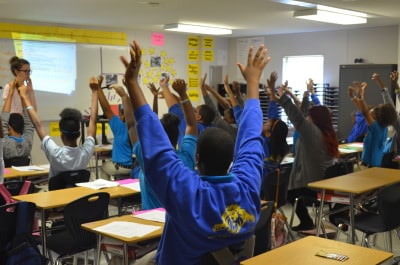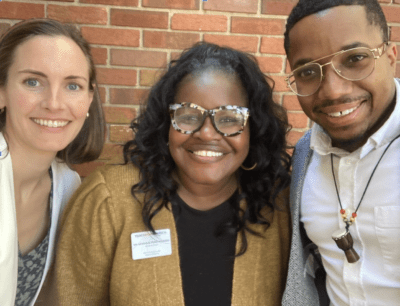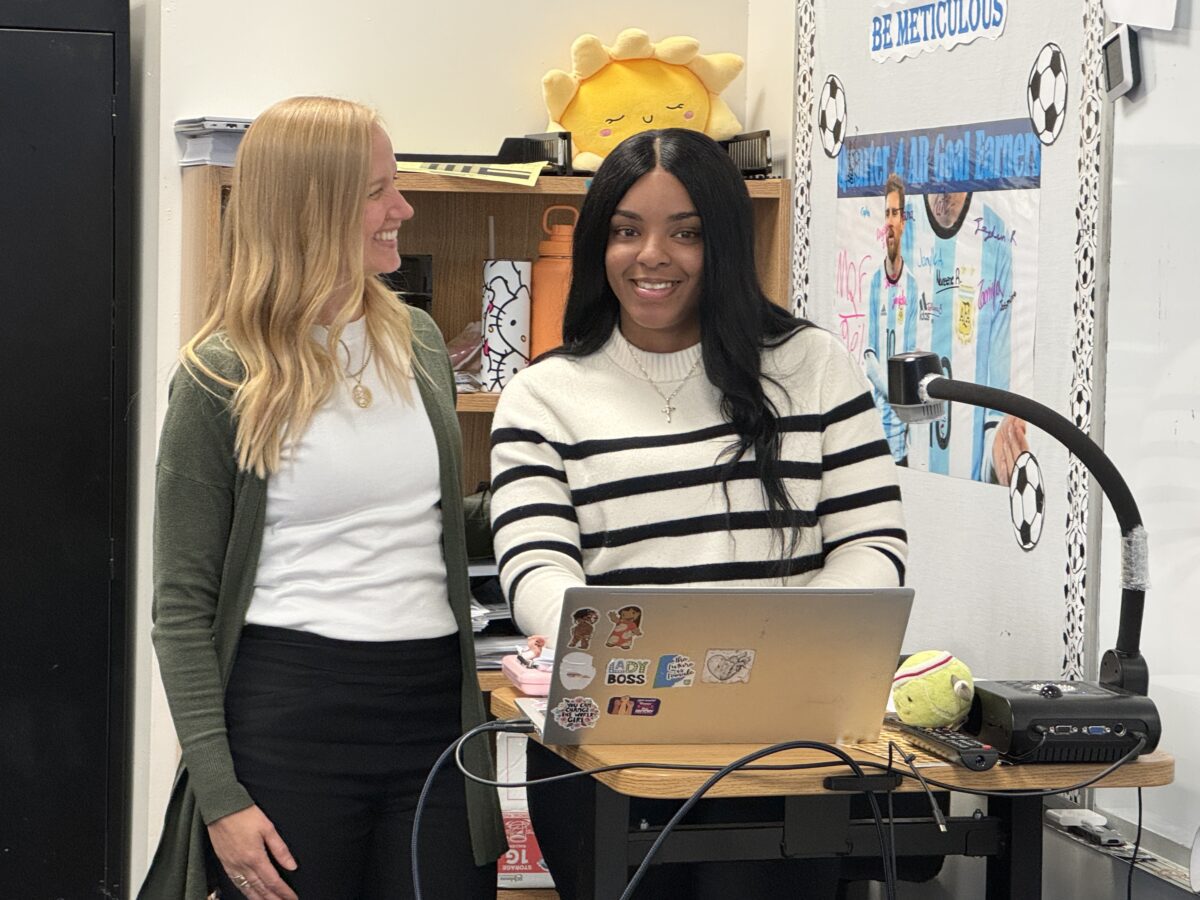
|
|
In October 2024, the N.C. State Board of Education granted initial authorization to “Want More? Do More!” — a for-profit company founded by the leaders of Henderson Collegiate, a public charter school in Vance County — to operate as an educator preparation program (EPP) in North Carolina.
It’s called TRP, which stands for teacher readiness program.
Who are the leaders behind the “Want More? Do More!” TRP?
A letter to the N.C. State Board of Education as part of the EPP application says, “The Teacher Readiness program is created by leaders from Henderson Collegiate, a high performing charter school located in Henderson, NC. Henderson Collegiate has historically scored in the top 5% of schools in the state and has met or exceeded growth expectations since it was founded in 2010. In fact, of 2,768 public schools in North Carolina, Henderson Collegiate ranked #1 of all K-12 traditional and charter schools in the 2023-24 school year. In each of the last four years, we have exceeded expected growth, achieved 100% of our EVAAS growth goals, and earned a school performance grade of B or higher.”
Sign up for the EdWeekly, a Friday roundup of the most important education news of the week.
The leaders of “Want More? Do More!” include:
- Eric Sanchez, co-founder and chief executive officer,
- Carice Sanchez, co-founder and chief academic officer,
- Barb Roeder, co-founder and chief operating officer, and
- Celeste Olsen, director of the Teacher Readiness Program.
While the EPP is new, these leaders are not new to education. They have served as teachers, instructional coaches, and deans of curriculum and instruction.
“The people who are building this program are experts at building new teachers,” Olsen said. “Our focus is on getting teachers better faster through ways that we know work.”
Carice and Eric have both been through the Relay Graduate School of Education‘s Leverage Leadership Institute (LLI) Fellowship, which according to the website, “is for high-performing principals and principal managers who serve in traditional school districts and charter management organizations from all over the world.”
Earlier this year, Carice was honored as one of eight “Platinum Leaders in the Field.” LLI looks for leaders “who are in the top 10% of schools in their local district or state, and have led student outcomes to double-digit gains.”
EdNC will be writing more in August 2025 about the impact of the fellowship on the instructional practices at Henderson Collegiate, but you can see in the pictures from our school visit the attention to the craft of teaching.
Principals and school leaders are talking ahead of class about the learning objectives, teachers are receiving support in real time in the classroom from school leaders and principals, instructional coaches are following up with teachers, and teachers are having the opportunity to practice changes to their teaching in response to feedback before they are in class with students.
The acquisition of knowledge by each student class to class is being assessed. If students aren’t learning, then the instructional strategy is adjusted until they do.
At Henderson Collegiate, the motto is “if you want more, you must do more.” A senior said the motto creates an encouraging environment that pushes everyone to strive for excellence.
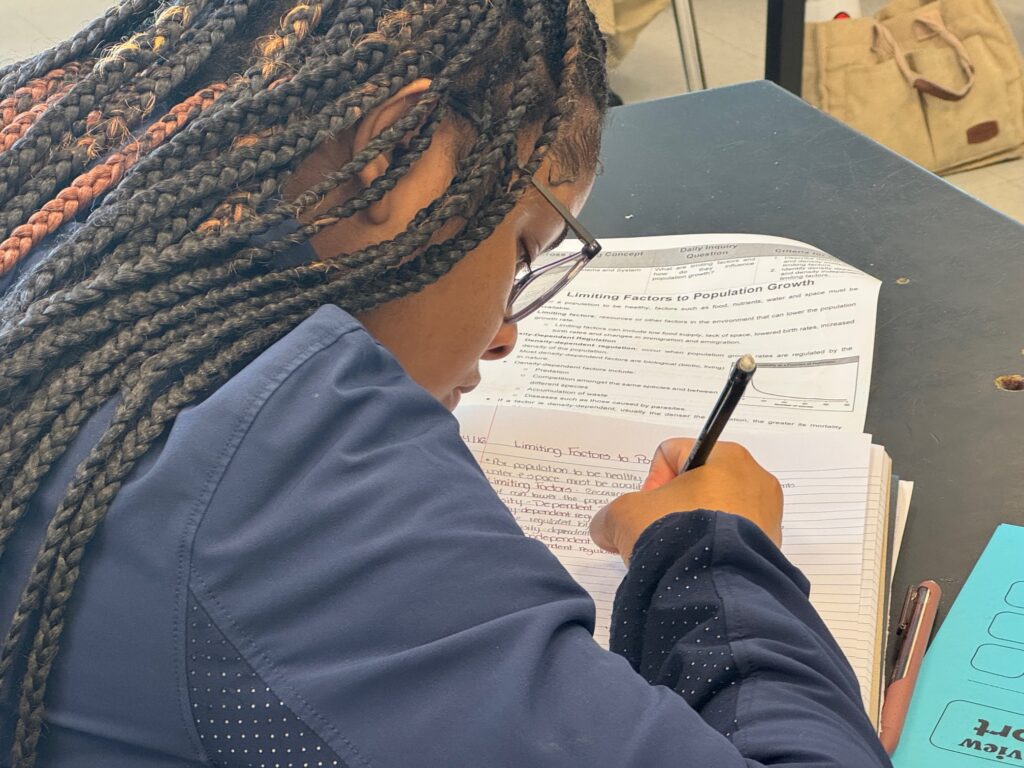
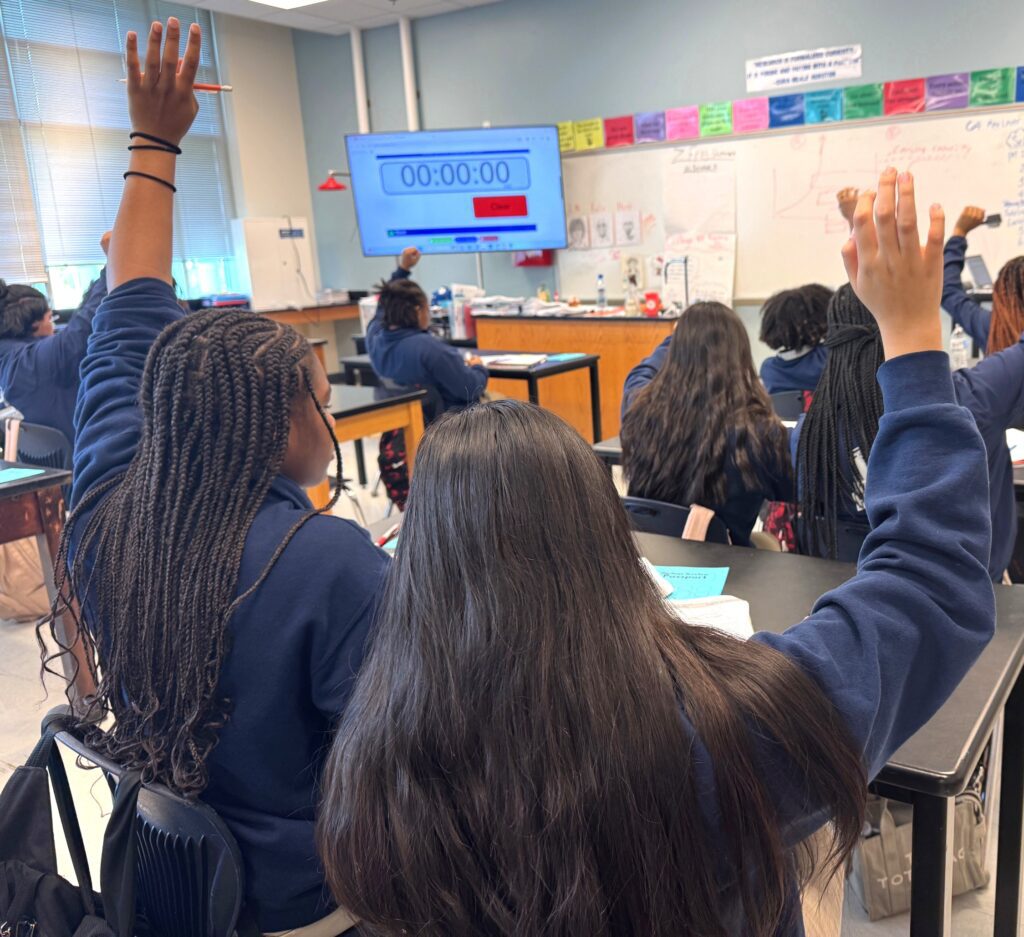
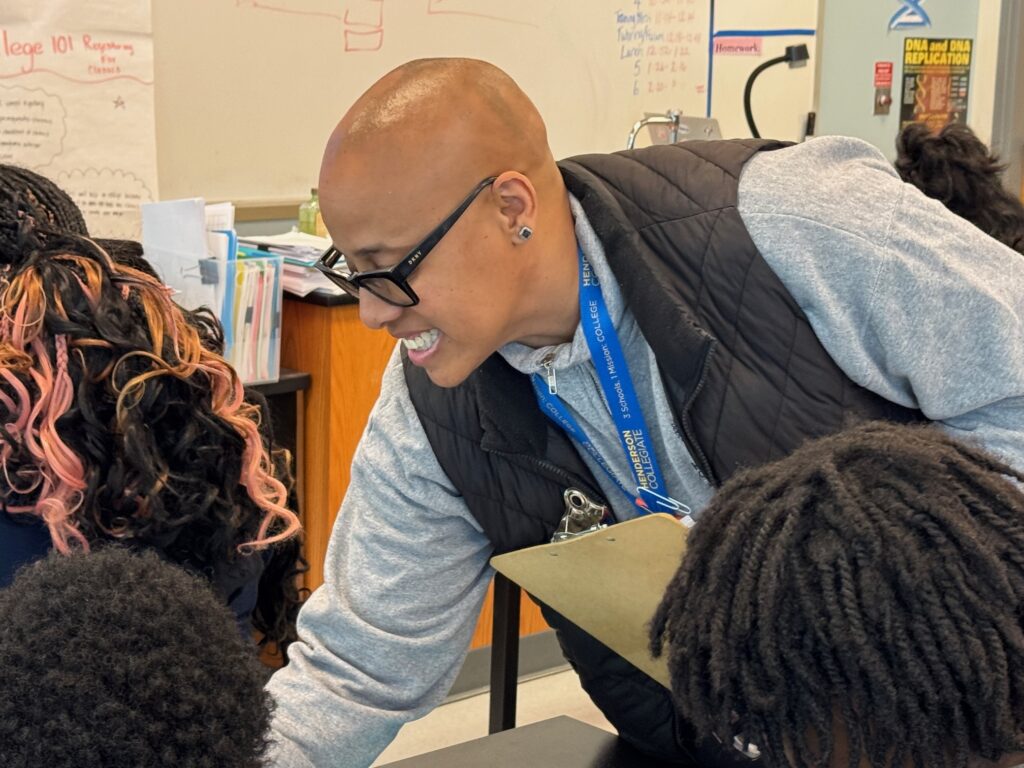
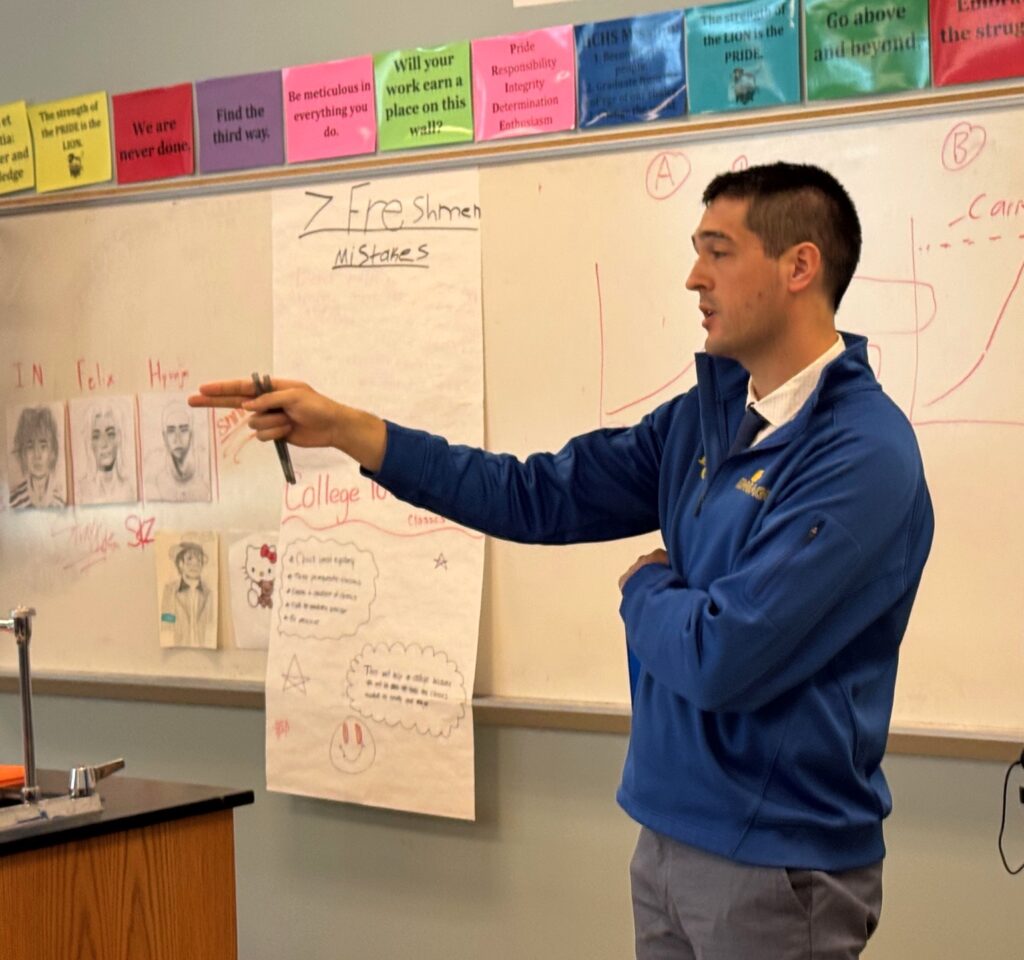
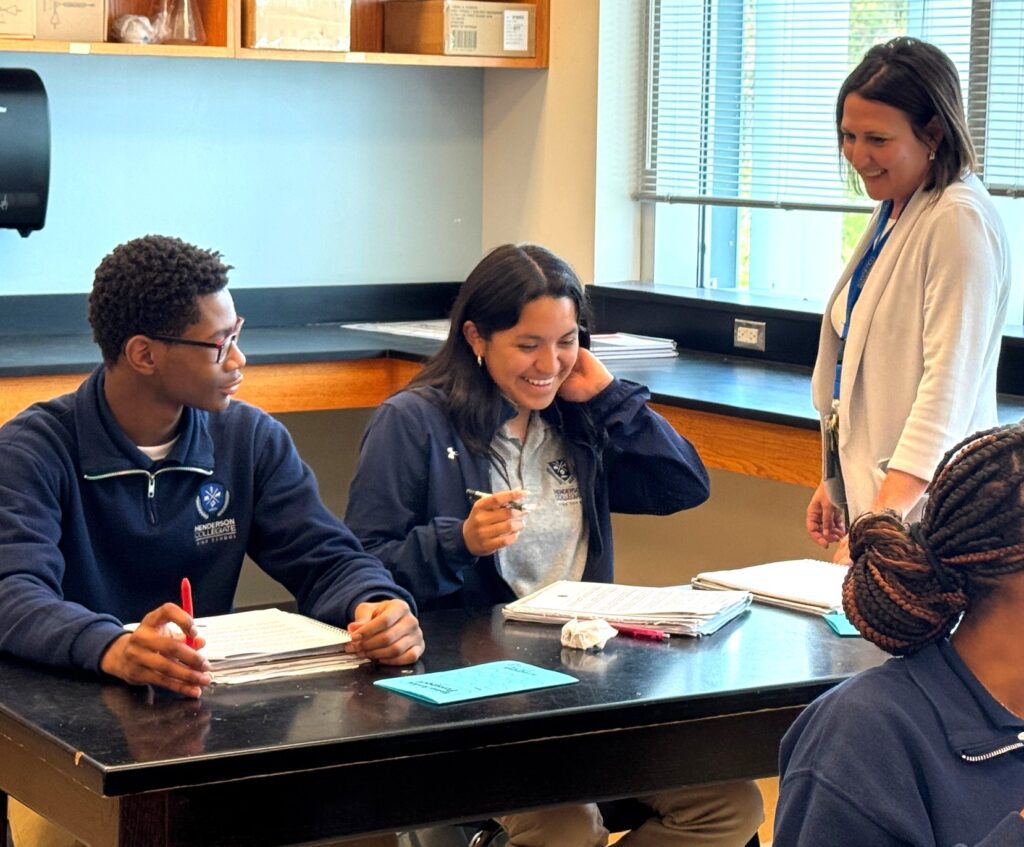
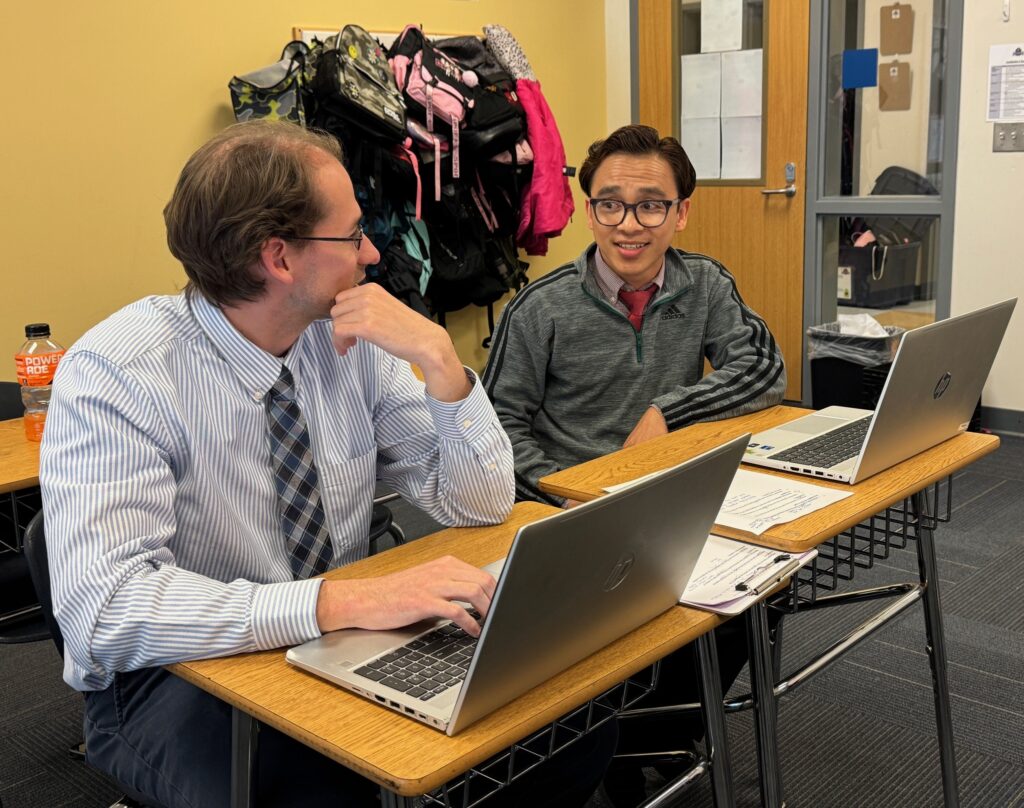
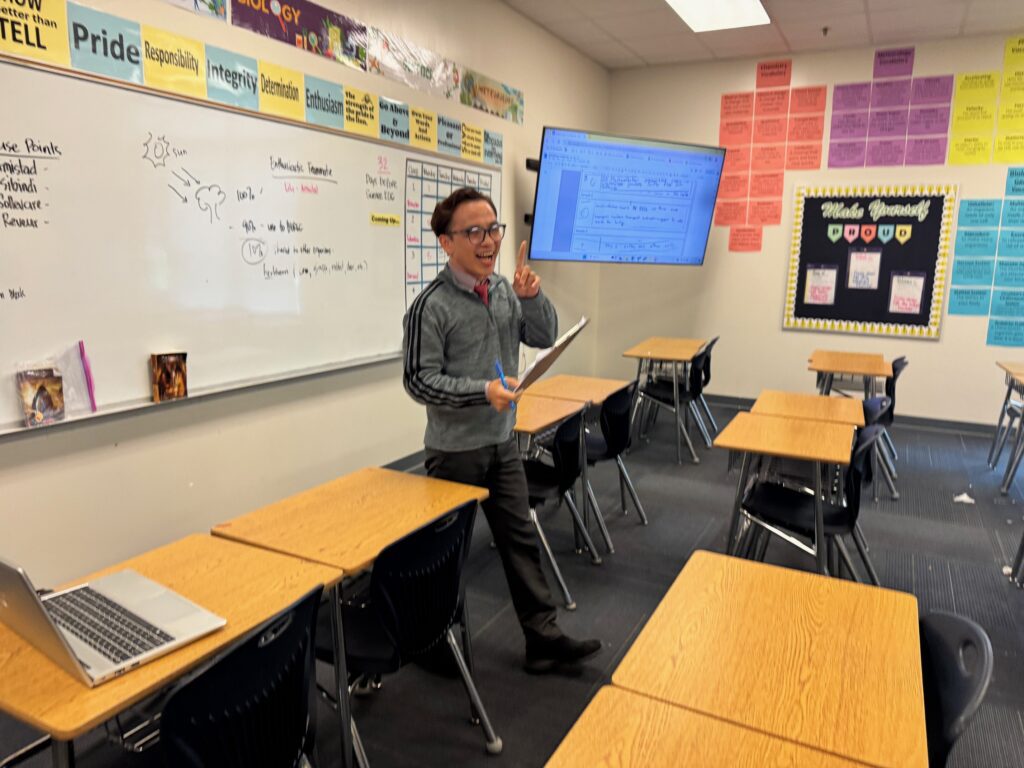
Who should apply/enroll to the Teacher Readiness Program?
Teachers in public schools in North Carolina need to be licensed eventually, but in some cases you can start teaching without a license, which is called lateral entry.
Applicants to be teacher residents in this EPP need:
- A bachelor’s degree from an accredited institution with a minimum GPA of 2.7,
- To meet all legal requirements to work in the United States,
- To not previously have obtained teaching licensure/certification for the state of North Carolina; and
- To be employed as a teacher and teach at least one class period a day where they have the responsibilities of planning and executing a lesson in order to complete the practice-based requirements of the program.
Completing the EPP gets teachers the license they need.
But this EPP is about more than compliance with the state’s licensure requirement.
The TRP is looking for teacher residents who want to get better at their craft, who are hungry, who want to understand how to develop their curriculum, and “just be a leader in their four walls,” Olsen said.
How much does the EPP cost, and who pays?
$5,000 if you pay up front, and $5,500 if you make four, quarterly payments.
Some teachers will pay the fee themselves. In other cases, the teacher’s school or district may pay the full cost up front, reimburse upon completion, or split the cost with the teacher.
The program can be completed in a year.
When do applications open? When do classes start?
The EPP soft launched in April 2025, and a handful of students are already enrolled.
Applications will open on Aug. 1, and enrollment will be capped at 60. Online, asynchronous classes start on Sept. 17.
Here is an interest form so you can be notified when the applications open.
Are teachers in traditional public schools eligible?
Yes! While Henderson Collegiate is a public charter school, “Want More? Do More!” and the TRP hope to serve teachers who work in traditional public schools as well.
How much coursework is there?
The coursework in this EPP is aligned with North Carolina Professional Teaching Standards and the Council for the Accreditation of Educator Preparation Standards.
The EPP offers nine licensure pathways: elementary education; math, science, social studies, and ELA for middle school core subjects; and math, science, social studies, and ELA in secondary core subjects.
Teachers in elementary school will take 17 courses, a total of 148 hours.
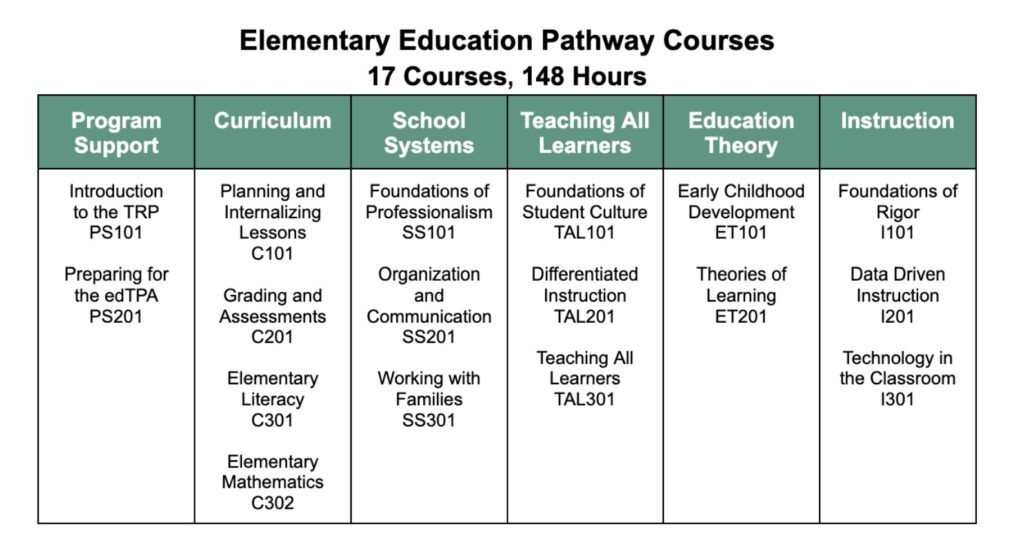
Teachers in middle or high school will take 16 courses, a total of 130 hours.
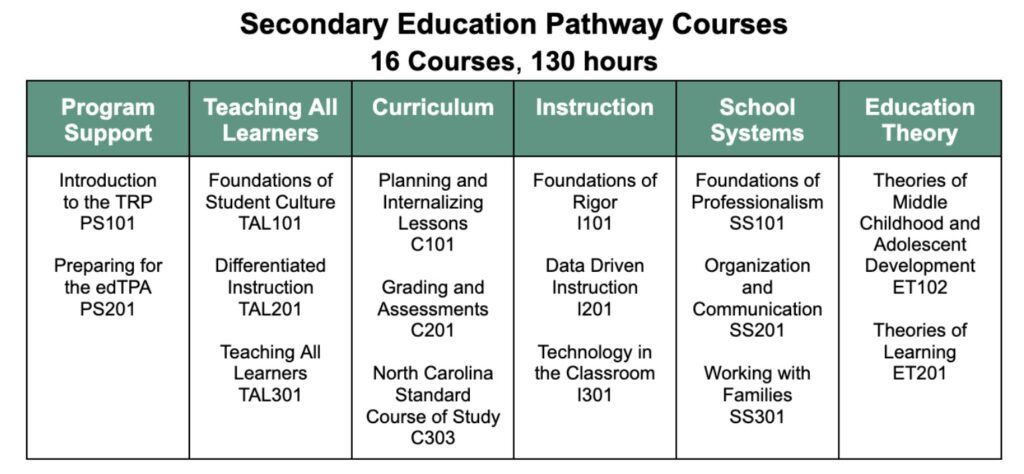
The courses fall into six categories.
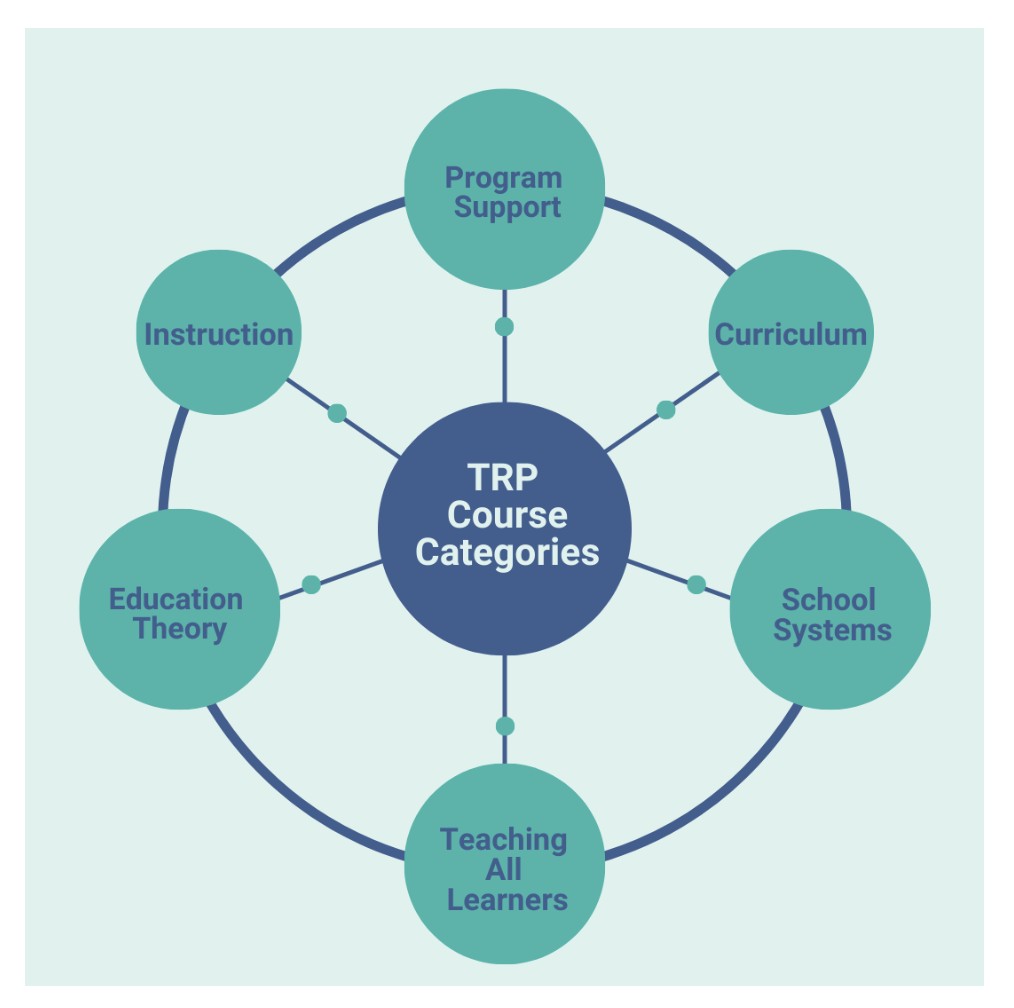
Program supports includes understanding and receiving “support for the TRP requirements for full licensure. This includes an introduction to the program, how to navigate the courses, practice-based course expectations, and preparation for the edTPA.”
Teaching all learners includes developing “the skills to manage a classroom and ensure all students are fully engaged and can access what is being taught. This includes learning how to differentiate instruction, work with EC students, and apply equitable principles in the classroom.”
Curriculum includes learning “how to plan and internalize lessons, create and grade assessments, and how to interpret Common Core and NCSCOS standards.”
Instruction includes implementing “strategies to ensure students are fully engaged in the classroom experience through discourse, data-driven instruction, and using technology in the classroom.”
School systems includes understanding “how to contribute to a strong school community, including managing deadlines, balancing school responsibilities, and working with colleagues and families.”
Education theory includes integrating “age-appropriate teaching methods that meet the child’s development and learning needs.”
The online, asynchronous coursework is self-paced.
“Using a competency-based approach, the program equips teacher residents who are already teaching in the classroom with essential knowledge, pedagogy, skills, and experience needed to be effective classroom leaders. The focus is on submitting evidence of student learning rather than just logging time in a course. Additionally, teacher residents must demonstrate mastery by successfully completing the edTPA, a state-approved competency-based assessment in North Carolina,” says a letter to the N.C. State Board of Education.
What does it mean to be practice-based?
Teacher residents in this EPP have to be employed as a teacher because as they learn, they are expected to put what they are learning into practice in their classroom.
Olsen said teacher residents will receive content in the courses and then there will be a process to make sure they understand the content. Teacher residents will then ask themselves how they can practice the content in their classroom. For example, she said, they may write a script for teaching a lesson and then record it on the computer. That’s similar, she said, to how teachers can and should practice prior to being in front of students. Artifacts will be created by teacher residents to document mastery of instructional practices.
In addition to being practice-based, this EPP is:
- Classroom-ready: Participants build real instructional capacity;
- Leadership-aligned: Mirroring mindsets and methods used in high-performing schools; and
- Supports cohesive systems: Fostering a shared instructional vision across teacher and leader development.
“This practice-based approach allows them to learn, apply, and as a result get better faster,” Eric said.
Why are these charter leaders starting an EPP?
The story of Henderson Collegiate and the story of “Want More? Do More!” is a love story.
In 2002, Eric and Carice Sanchez were both sent to teach in the Vance County Public Schools through Teach for America.
“Not only did we meet each other, fall in love, and get married thanks to this experience, we also fell in love with the Henderson community,” says the Henderson Collegiate website.
They applied for a charter in 2009 and opened the doors of Henderson Collegiate in 2010.
Unlike many other charter operators, the Sanchezes decided not to add schools. “Expansion wasn’t the way to further our mission,” Eric said.
Instead, they started “Want More? Do More!” to share their leadership and instructional best practices, and in their own way do more.
Eric and Carice wanted to share the tools to increase efficacy and student achievement while encouraging educators to maintain autonomy and “the art of execution.”
Teachers teach in a way that fits their school, their context, their community, and the students they serve, Eric said. “I love fundamentally saying to teachers, here are the tools. You decide how to use the tools,” he said.
They started out offering professional development, but, Eric said, “PD without reinforcement doesn’t stick.”
“When we furthered the PD with ongoing support, then people can put these instructional, leadership practices into play and increase student achievement,” he said.
In addition to the EPP, “Want More? Do More!” offers the ILC, an instructional leadership cohort.
“Our year-long cohort collaborates for both individual leader development and school growth. This program includes 12 full days of active, engaging professional development, and participants work one-on-one with the same instructional coach throughout the year to develop an in-depth relationship and get ongoing, personalized feedback,” says the website.
Among others, clients include:
- Durham Charter School, which improved from a D to a C, top 10 in growth;
- GLOW Academy, which exceeded growth for the first time;
- Sallie B. Howard, top 1% in student growth; and
- The Expedition School, rated A and exceeded growth targets.
“ILC alumni leave with the tools, systems, and leadership mindsets to support high-quality instruction schoolwide. They are prepared to lead strategic improvements in teaching and learning that translate directly to stronger student outcomes,” according to “Want More? Do More!”
If your school is interested in being in the eighth cohort of the ILC, here is an interest form.
Eric said the throughline in their work with Henderson Collegiate, the ILC, and now the TRP, is that “if we help our leaders be instructional leaders and we help our teachers learn fundamental levels of execution in their classrooms, the ecosystem of the school is going to be one where student achievement is just going to rise, and then grow, grow, grow.”
Recommended reading
